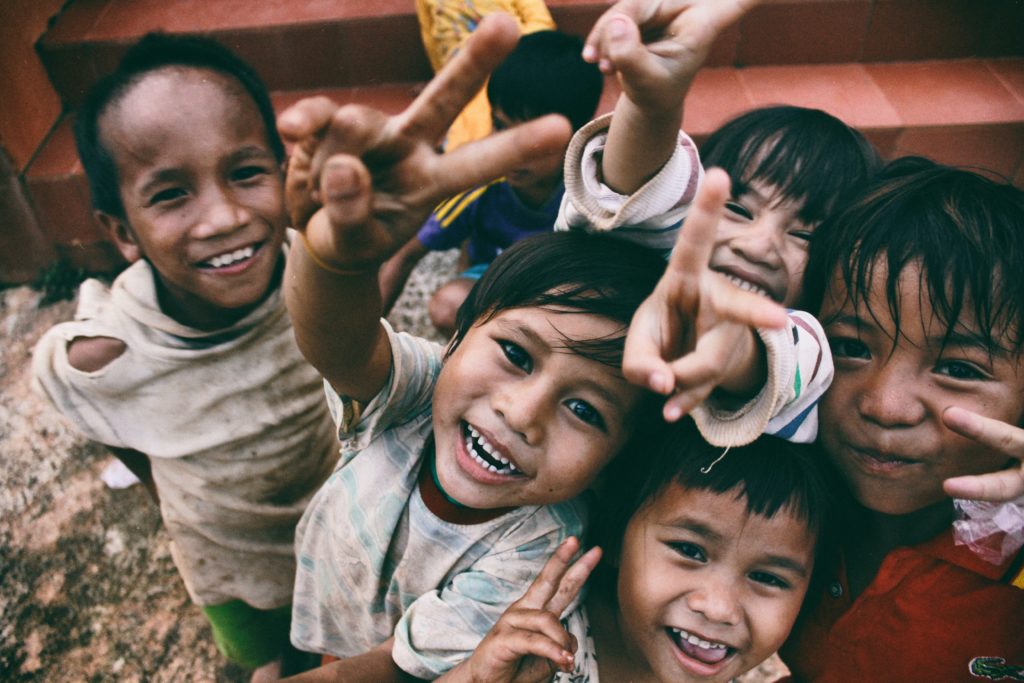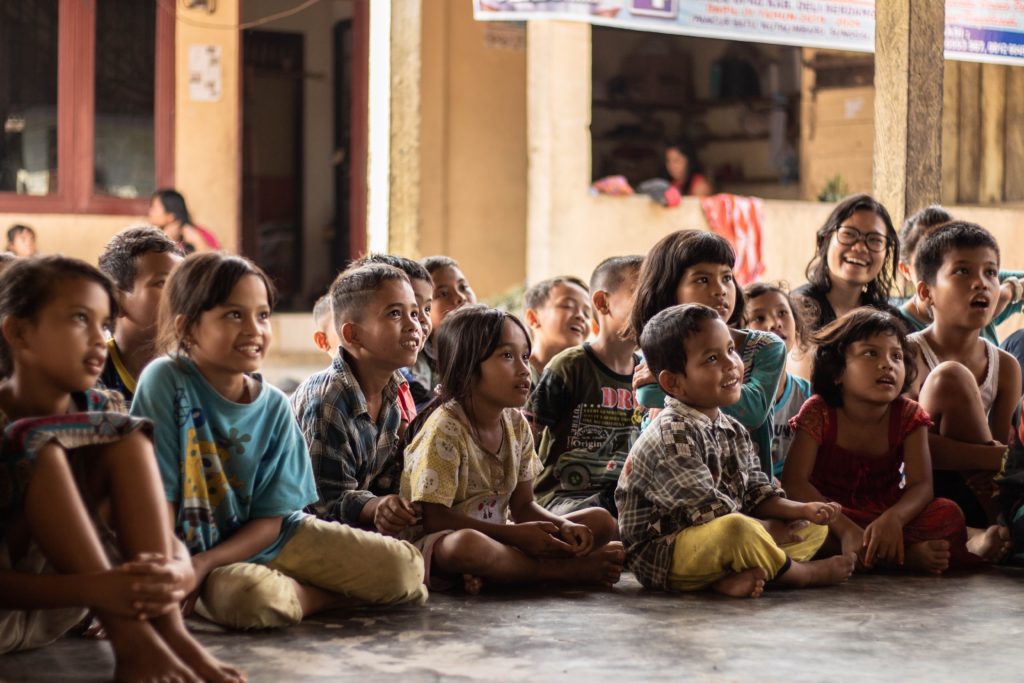(Click here to read the article as a PDF document)
Introduction
May 27 of every year is a special day earmarked for the celebration of children. This year’s children’s day was another opportunity to celebrate the children. Many of my friends posted pictures of their children or children in their family (nieces, nephews, cousins, etc.) on their timelines. It was sweet.
On the one hand, the whole celebration increased my admiration for children. Children are adorable. However, on the other hand, I was left thinking about some of the ways in which our current cultural climate is hypocritical in its celebration of children. What do I mean?
Anyone who sees the way we celebrate children and adore them every May 27 will think that is how much we value them. However, the truth is we often see children more as liabilities rather than assets.
For example, from January 1 to the time of writing, we have murdered seventeen million babies in the womb. Estimates show that we kill about 40-50 million babies every year. We have already done 42.5% (if we take the lowest figure- 50 million) or 34% (if we take the highest number- 40 million) in five months. However, abortion is just one of those ways we act as enemies of children. There is more to come. Stay tuned.

Children are Blessings
God is the source of all truth. His word – the Bible- is the revelation of his truth. We learn from scriptures that children are the heritage of the Lord (Psalms 127:3, see also Ezekiel 16:20). The word heritage is from the Hebrew ‘nachalah’, which means “possession, property, inheritance, portion, and heritage” (BDB definition). The Bible affirms that children are God’s property, possession, inheritance, portion, and heritage. They belong to him by creation.
If children are God’s, it means they only belong to us as gifts and trusts. They are gifts because, in a sense, we do not ‘own’ them (since we did not create them). They are a trust because their creator gave them to us, and we are responsible to Him for what we do with them (this is why he rebuked Israel for sacrificing them to Molech – Ezekiel 16:20).
The Bible also affirms that children are a reward from God (127:3). God gives them as a reward to those who live to please him. Apart from God’s general gifting of children to everyone who has them, he also gives children as a reward to certain people.
In Psalms 127:4-5, we learn that children are arrows in the hands of a warrior, and the man who has many is blessed (contrary to what we think today). Children are blessings; the one who God grants the privilege to have them is a blessed man. One of the promises of God to Abraham is that his posterity will be so numerous (Genesis 15:4-5). One of the promises of God to Israel was that none among them would be barren (Deuteronomy 7:14).
God, the creator of the universe, affirms that children are his gifts, a reward, and a blessing.

The Enemies
However, in contrast to what God says, we often see children as liabilities. Therefore, we believe the less, the better. Because of this false ideology, our societies act as enemies of children in many ways. Rather than embrace them as God’s good gifts, we see them as burdens – limitations to a full and enjoyable life (individual and societal).
Economists
One way we do this is through economic policies or beliefs. Communist China implemented the one-child policy back in 1980. The idea was to limit the number of children in Chinese households to one. The policy opened up a floodgate of abortions. China felt (as many people do today) that their growing population was inimical to economic growth. They felt there was a direct correlation between population growth and poverty.
This kind of thinking is misleading. It is nonsensical to believe that the growth rate of a population is the one single factor (or even the most critical factor) that determines its prosperity. There are tons of factors that determine the prosperity of a nation. The economic system a country adopts, the availability of laws ensuring free enterprise, innovation, and entrepreneurship, the level of corruption in the government, fiscal and monetary policies, security, international economic policies, etc. are some of those factors.
People are not liabilities. A country can make them into liabilities by how it performs in relation to the factors that determine economic prosperity stated above. However, to think that people are liabilities, and having less of them is equivalent to economic prosperity is misleading. People drive the economy; people are the force of industrialization. It is the productivity of people that drive the GDP. A nation with sound economic policies and practices turn its people to assets, vice versa.
The United States is the third most populated country in the world, yet it has the highest GDP. Three of the most populated countries are part of the ten biggest economies.
All of this means that it is foolhardy to assume that a growing population is in itself a problem. The presence or absence of the factors that facilitate economic growth and development is the crucial issue.
Painful Realization
The country that made it illegal to have more than a child is now urging its people to have more children. The Chinese population is aging with expectations that a third of the population will be above 65 by 2050. The only problem is that Chinese households don’t want more children. China now recognizes that the children of today are the working force of the future.
Abortion
Arguably, the greatest enemy of children is abortion. We have seen the stat that puts global abortions at 40-50 million annually, about 175,000 abortions every day. It is well established that life begins at conception. Therefore, every fetus murdered in the womb is a living being, a person bearing the image of God.
Murdering children in the womb for no offense on their part is a grave sin on our part. 175,000 is more than the population of some towns. If someone raids a town and kills 175,000 people for no offense, we call it genocide. Nevertheless, we do that every day to children in the womb and call it reproductive rights.

Homosexuality
Homosexual marriages do not produce children. Children only come from the sexual relationship of a man and a woman (not a man and a man or a woman and a woman). Homosexual couples may adopt children, but that is not the same thing as giving birth to children. Giving birth to children increases the number of children; adopting them only changes the location of the same number of children.
Homosexual marriages are not fruitful, and the more of that we have, the less fruitful a society becomes (at least compared to what it could be without homosexual marriages).
Premarital Sex
Most people who visit abortion clinics are young people who were having sex outside of marriage. Many advocates of abortions (the murder of innocent children) will use cases of rape, incest, etc. to show why abortions should be legal. The irony is that the vast majority of abortions come from consensual sex rather than rapes or incests.
The more a society encourages premarital sex, the greater the possibilities of unwanted pregnancies, and the higher the cases of abortion. A culture that promotes sex outside of a covenant relationship (marriage) and encourages promiscuity and unlimited sexual adventures will lead to the increasing murder of innocent children.
Single Parenthood
However, abortion is not the only effect of premarital sex. Many of those who decide to keep the children often end up as single mothers. Generally, single motherhood has many adverse effects on the development of a child (of course, there are exceptions). The first is the economics. In the U.S., for example, a third of the people living below the poverty line are from single-parent households. Single parenting increases the probability that a child will grow up in poverty.
God created us male and female for good reasons. Every child needs a mother and a father. While there are circumstances beyond our control that lead to single parenthood (death, for example), we should not worsen the situation by adding to it through controllable causes (premarital sex). The lack of a father figure (or a mother figure in some cases) can be bad for the upbringing of the child.

Divorce
Divorce is another enemy of children. In the U.S., nine divorces take place in the time it takes a new couple to read their wedding vows.
Divorce is becoming a big problem in many societies, and Nigeria is not an exception.
Children often suffer the most from divorces. Researches show that children often face mental health and psychological issues like depression and anxiety after a divorce. Divorce leads to a lot of stress due to the changes it causes. It can also lead to conduct disorders, delinquencies, and impulsive behavior. They feel less close to their parents and worry that if their parents could stop loving themselves, maybe they can stop loving them. Some even wonder if they are the cause of the divorce.
Divorce is another cause of single parenthood. With divorce becoming more commonplace, the children are the ones who suffer.

Feminism
I believe feminism (as it manifests in society) is one of the causes of the increasing incidence of single motherhood and divorce. Feminism wants to liberate women, but it does not deliver on its promises because there is no liberty apart from Christ and his word of truth.
The idea that staying at home to take care of your children is silly or that climbing the corporate ladder is the highest achievement is poisonous (a woman can choose to work outside of the home, but she should not think that she’s doing something nobler than the woman who stays at home). The idea that unrestrained sexual freedom is a good thing is poisonous. The ideology that sees men as the problem and affirms that women do not need men has shown its evil roots in its fruits. In many quarters, feminism makes many women see children as big distractions and impediments to their ‘freedom’ and ‘advancement’. As Mona Charen puts it, “Feminism has destabilized the American Family.” It does not only destroy the American family; it destroys the family of any society (including Nigeria’s) that opens the door to its stupidity.
The children suffer the most.
Materialism
The Chinese government is failing in its attempt to get the people to give birth to more children. One reason for this is that parents prefer to raise a child than two. They believe two children will be more expensive. According to them, it is better to spend all that money to give one child the best of education. They want that child to climb the social ladder and become successful in life. The rat race to the top is more difficult, and only the best can climb to the very top. So they want to invest it all in one child who can win in the rat race.
The whole thing reeks of gross materialism. Because we live in a materialistic world where the only thing that matters is getting to the ‘top,’ we make every decision on that basis. We are materialists, and we view the task of parenting with those eyes. We have lived all of life in the rat race, and we can only think about our children with those same eyes.
No wonder we put a lot of pressure on our children. He must be at the top of his class; he must have the scores needed to go to the top university. We begin to evaluate them based on their performances. She must study Nursing or Pharmacy; he must be an accountant, doctor, or lawyer. Since that is what matters to us in our lives, we project it to our children.
This is so wrong-headed. The Bible warns us that we should beware of covetousness since the life of a man does not consist in the abundance of his possessions (Luke 12:15). Jesus warned us repeatedly about mammon (Mathew 6:24, for example). Covetousness is idolatry (Colossians 3:5), and riches are deceptive (Mathew 13:22)
This whole concept of investing all the money to help one child get to the top and scale through the rat race is contrary to biblical wisdom. Every man’s duty is to love God and his or her neighbors. If we see the whole of life as one big avenue to glorify God and serve our neighbors, it changes our perspectives.
It means every parent’s primary goal is to train children who will love God and their neighbors. The focus will be to raise them to glorify God and serve their neighbors.
With this mindset, our children can be free to pursue whatever life’s calling they desire. He does not have to become a doctor (or she a nurse) for me to feel my investment was worth it. Instead, my joy will be that I have raised a child who recognizes his duty to God and man (however, he chooses to live out that duty). That takes away the materialistic pressure that he has to attend this or that school to become someone in life (whatever that means). What he or she needs is an education that will help them gain a deeper appreciation for their duties to God and man. It reshapes our whole understanding of what a good education involves and what it takes to raise a child. It is not the tuition fee or the acclaim of a school that defines true education. In fact, the best education a child needs is the one that takes place in the confines of a home. We must raise children whose vision of life is bigger than the endless rat race.
No one can legislate how many children a family should have; it is the prerogative of the parents. However, we must stop approaching that decision with a materialistic mindset.
According to Resources
None of this is to say that people can give birth to ten or fifteen children without concern for their ability to care for them. However, we should note that it is materialism that makes many people claim they cannot raise more than one or two children.
Raising children can indeed be expensive. However, I believe that our materialistic society (and its impact on our expectations) makes us blow that cost out of proportions and lead us to wrong conclusions about our ability to raise children. I cannot imagine a family with a combined income of #400,000 per month, claiming they cannot raise more than one child. That is evidence of our materialistic culture that we project into child-raising.
We have heard and seen cases of children raised in so much luxury but end up hating their parents because they worked so hard to provide all the leisure that there was no time to develop close relationships with the children. The materialistic parents must continue to pursue materialistic ends so their children can think they are good parents. Many of us today appreciate and love our parents even if we did not grow up in luxuries. Imagine if they did not have us because they could not send us to Harvard or Babcock.
We think our children will love us only if we can give them all the luxuries, but children can only think like this if we (and the culture) shape them to have those kinds of expectations. It is only a child that we have shaped in our materialistic image that will hate his parent because they did not send him to the top university in the country and give him the opportunity to become an associate at McKinsey.
Rather, if we help our children to understand that the goal in life is to love God and their neighbors through their life callings, it will matter less if they went to an ivy league university or a local university with 5000 students.
Avoiding Misunderstandings
You should not misconstrue any of the above to mean everyone should have as many children as possible. Some women might put their lives at risk giving birth to more than one child. However, those are extreme circumstances. Also, I believe there are basic provisions that parents should give to their children (1 Timothy 6:8). Therefore, parents would want to consider their capacity to give their children that basic sustenance.
My contention is, instead of thinking about how many of them we can avoid, we should think about how many of them we can have. In making that evaluation, we must not project the materialism of our culture on them. Rather, we must focus on raising children who love God and love their neighbor – children who have the freedom to choose the place in life where they want to serve.
With our current materialistic mindset, we may get to a place where we begin to see children as the privilege of the rich and follow China’s lead (we already have too much governmental power in many democratic nations to make this possible). Of course, parents should strive to make life better for their children, but the problem comes when we think of that better life in a purely materialistic sense.
Children are blessings, not liabilities. We should see them as producers and not consumers.
Children as Assets
In contrast to the preceding, the Bible teaches that children are assets. Of course, raising children is hard – the expenses and the time investment are just a few examples. However, this does not take away from the fact that children are the heritage of the Lord – God’s good gifts to us.
Every asset has a cost, but it also has future earning potentials. A company may invest millions of naira in a building or machinery. Nevertheless, the company does not grieve over that purchase because of the future earning potentials of the asset. Assets cost money just like expenses, but the former brings in money over the years that more than compensate for the initial outlay.
Humans
Children are assets because they are humans. They bear the image of God. When God made man, he commissioned him to be fruitful and increase in number (Genesis 1:28). God was angry with the people at the tower of babel because they wanted to centralize in one location rather than spread out on the earth (Genesis 11).
Increasing, multiplying, and subduing the earth are creational mandates. Children are part of the fulfillment of that mandate. Every new human on the face of the earth is an asset because he or she (yes, he or she, period) is a direct fulfillment of the creational mandate.
Humans are unique in God’s creation (contra naturalists). The heavens that God made, the moons and stars may be grand, but God is mindful of man, he made him a little lower than the angels and crowned him with glory and honor (Psalms 8:1-5). Every new human is crowned with glory and honor and only a little lower than the angels. We must never see him or her as just some lists of expenses, distractions, and discomforts.

Prosperity of Society
Children are assets because they are the future workforce of society. God commanded us to fill the earth but also to subdue it. The work of civilization since then has been a project at subduing the universe. From the hunting and gathering days to the fourth industrial revolution, we have been conquering the earth.
Fulfilling this creational mandate requires different people working in different vocations – the workforce. Children are assets because they are the future of the workforce; they are the future of civilizations. They will further subdue the earth beyond our present capacities.
The United States is learning this in a difficult way. As the birth rate is plummeting, they are discovering that there will not be enough people contributing to social security. Social security is a program that pays retirees every month. The program is funded by payroll taxes on the workforce. As the birth rate declines, the workforce declines, and the funds available for social security benefits reduce. The whole system is built on one generation paying for the retirement of the previous generation in anticipation that the future generation pays for theirs.
However, the expectation is that the social security trust funds will be empty by 2035. The worker-to-benefit ratio, which was 3.3 (3.3 workers paying for one beneficiary), is now declining (the forecast is 2.1 by 2030).
The above is an example of what happens when a society fails to recognize children as assets.
N.B: The above is only an example; it is not a statement of support for the social security system.

The Faith of the Gospel
Passing on the faith to the next generation was an essential part of Israel’s covenantal obligations. They were to teach God’s commandments to their children (Deuteronomy 4:10; 6:2, 7; Psalms 78:4-8). It was the duty of every generation to pass on the faith to their children. Their faith must be generational.
In the same way, believers are to bring up their children in the training and instruction of the Lord (Ephesians 6:4).
Every child is an asset because he is a potential member of the New Covenant. Christianity is a generational faith. We must pass it along to the next generation, and we do so by teaching and nurturing our children in the Lord.
God is saving a people for himself from every tongue, language, tribe, and people (Revelation 4:9). The new earth will not be scanty; it will be a massive ingathering of Christ’s sheep from every generation. Every child is a potential member of the kingdom of Christ in its present state and in its consummation.
As potential members of the covenant and partaker of the heavenly kingdom, every child is an asset.

Arrows: Contending with the enemies
In Psalms 127, we see a comparison between children and arrows. Children (or sons – NIV, NET) born during one’s youth are like arrows in the hands of a warrior. The battle metaphor also continues to the next verse. Just like a warrior is blessed if he has many arrows in his quiver, “blessed is the man who fills his quiver with them.” The referent in this verse is children. Just as a warrior with many arrows is a blessed man, a man with many children is a blessed man (contrary to our cultural beliefs).
Why is the man with many children a blessed man? He will not be put to shame when he contends with his enemies in the gate. The children of his youth will accompany him to his battles. The Basic Bible English puts it this way, “his cause will be supported by them against his haters.”
Children are weapons of war (arrows) in the hands of their parents. The battle here is not necessarily physical. The ESV translates the Hebrew word for ‘contend’ as ‘speaks’ (speaks with his enemies at the gate). It is probably a verbal battle with his enemies in an argument or a court case. However, even in a time of physical battle (the gates are important ground in battles), this verse is true. A man who has to defend his city in battle time is blessed to have his children like arrows in a quiver.
Believers do not fight physical battles (except we are called to fight for our countries in a just war), but we fight nonetheless. Though are weapons are not carnal, yet ‘we demolish every argument and every pretension that sets itself up against the knowledge of God and we take captive every thought to make it obedient to Christ” (2 Corinthians 10:5).
We have a duty as believers to contend for the faith (Jude 3) and stand against everything that sets itself up against the knowledge of God.
Our children are arrows in our hands for that battle. As we nurture and admonish them in the Lord, they join us in this battle. They continue the legacy of Christian faithfulness as they join us to demolish all arguments and pretensions. As they join us in that great battle, they are assets.

Conclusion
Celebrating children goes beyond posting their pictures on our timeline. If we genuinely love children, we must stop acting as their enemies and thinking about them as some massive chunk of expenses and liabilities.
Our society acts as enemies of children in many ways. If we want May 27 of every year to be more meaningful, let us stop acting as the enemies of children.



